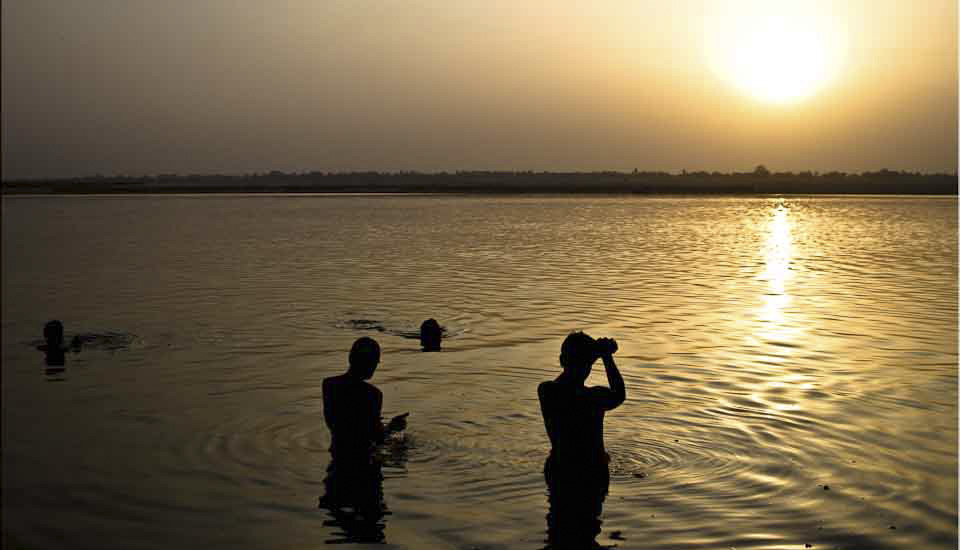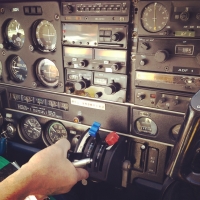.jpg)
Tullamore Dew
The barrels are empty and the doors are closed – it’s a rainy afternoon in Tullamore, Co Offaly, Ireland.
It’s a small world, right?
We were at the Byron Bay Bluesfest (Back to the Roots) recently. On the Saturday, we walked into the Delta tent to hear the delightful celtic accent and the cheeky, cackling laughter of Irish Mythen, a singer-songwriter born and raised in County Wexford and now based in Canada’s tiny Prince Edward Island.
She was talking about her mother’s hometown of Tullamore in County Offaly in the middle of Ireland. I looked at my husband – yes, we’ve been there!
We were on our way to Dublin (The Guinness Storehouse), zig-zagging across the country from the Connemara (Glimpses of Galway), stopping at sites from the Michelin Guide that took my fancy along the way (Ireland).
On the day in question, we had spent the morning at the ruins of a centuries-old monastery (Clonmacnoise) and a lived-in castle (Birr Castle), and we were looking for the home of the world-famous Irish whiskey, Tullamore Dew, to round out the afternoon. Unfortunately, the distillery was closed – renovations or holidays; I can’t remember why – leaving us rather downcast.
Not as downcast as Mythen with her “Tullamore Blues”, mind you, but we did have to go back to the drawing board and the guide book! A quick check of the maps and the guide, and we pointed the car north again, driving to another maker of Irish whiskey, Locke’s Distillery in Kilbeggan, Co. Westmeath.
I’m sure it tasted just as good!
.jpg)
Locke’s Distillery Crystal
As well as producing world-class whiskey, Ireland is known for its crystal (eg.: Waterford). It is only fitting then that awards for excellence and commemorative glasses be made from local blown and carved lead glass.
.jpg)
Old Distillery Machinery
The licence to distill whiskey here dates to 1757; the pot still distillery and machinery is over 250 years old. A self-guided tour takes visitors along heavy wooden walkways through the dark buildings and old machinery.

Steam Engine
Power to the distillery used to come exclusively from an old water wheel; the steam engine was put into place in the 1880s for the occasions when water levels were too low, or the water wheel needed repair.

Old Distillery Machinery

Drive Shaft
This old drive shaft turned all the machinery in the distillery. Until the 1880s when the steam engine was installed, the water wheel was its sole source of power.

Old Distillery Machinery

The Distillery Surrounds
Water – both as an ingredient, as a source of power- is essential to whiskey production. The Kilbeggan Distillery sits near the River Brosna and draws water from there.

Old Pot Still
Traditional Irish whiskey from Kilbeggan was made by the slow and costly single-pot still method.

Copper Pot Still
The copper stills were filled with barley mash and fires – originally fuelled by local turf, and later by imported coal – were lit underneath.

Copper Pot Still
Alcohol evaporates at a lower temperature than water, so with steady heat the alcohol condensed.

Barrels
Although most Kilbeggan Whiskey is now produced at the Cooley Distillery in County Louth, there were plenty of barrels on site here.

Customs and Excise “Office”
By Irish law, every distillery must have a permanent “office” for when the Revenue Officer choses to visit.

From the Inside
New buildings are set back from the old originals; workers are scattered around the site.

New Distillery Machinery
Cooley bought Kilbeggan and the associated brands in 1988 and installed a new copper pot still in 2007 to mark the 250th anniversary of the Old Kilbeggan Distillery.

Kilbeggan Casks
All Irish whiskey must mature for a minimum of 3 years and 1 day, although many whiskies are much older. The oak casks are bought from US bourbon producers like Jack Daniels (A Shot of Jack).

Spirits Receiver Room

The Gift Shop

Kilbeggan Delivery Van

Police Officer
The police were outside on the road when we returned to our car with the samples we had bought. What a good thing we hadn’t participated in a “tasting” while still on site!

Polishing Pewter
If you are going to drink Irish whiskey, perhaps you need a traditional utensil to put it in: the next morning we continued north to Mullingar to visit the Bronze and Pewter Works.

Polished Pewter Goblets

Polishing Pewter
The pile of shavings left behind shows how much of the pewter gets wasted; I’m not sure if it can be re-used.

Packing Pewter
Paddy Collins revived the traditional craft of pewter making here in 1974, and his son Peter now runs the business. They ship product all over the world, keeping the small staff busy.

Traditional Celtic Design
The old designs and old methods are used – although modern pewter is entirely lead-free.

Naturally we had to pick up a few pewter pieces to go with our Irish whiskey…
That will chase the blues away! 😉






























.png)
.png)


[…] Edward Island, brought her irreverent humour, her original songs (for a sound clip, visit: Irish Pewter and Whiskey), and her infectious laughter to Bluesfest. The audience loved […]
[…] Irish MythenWe’d seen Irish before (see: Blues All Over the World) and made sure we didn’t miss her this year. She did not disappoint! (For one of her original songs, check out: Irish Pewter and Whiskey) […]